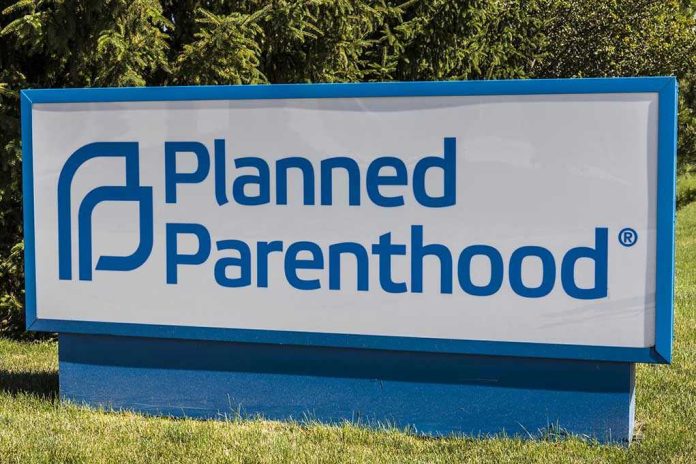
Federal funding cuts have forced Planned Parenthood of Wisconsin to halt all abortion services, signaling a seismic shift in healthcare access that many see as a victory for fiscal sanity and constitutional values.
Story Snapshot
- Planned Parenthood will stop scheduling abortions in Wisconsin starting October 1, 2025, due to new federal Medicaid restrictions.
- The shutdown is a direct result of President Trump’s One Big Beautiful Bill Act, not a change in state abortion law.
- Only two independent clinics remain statewide, leaving most Wisconsin counties without abortion providers.
- The move has triggered legal battles, fierce political debate, and major implications for Medicaid patients and rural communities.
Federal Law Triggers Planned Parenthood Abortion Shutdown
Planned Parenthood of Wisconsin’s decision to halt all abortion scheduling as of October 1, 2025, comes directly after President Trump signed the One Big Beautiful Bill Act into law in July. This landmark measure prohibits clinics offering abortions from receiving any Medicaid reimbursements for other health services, a move intended to ensure taxpayer dollars do not indirectly fund abortion providers. Wisconsin is now the first state to see Planned Parenthood pause all abortion services due to federal Medicaid policy, not because of state law changes.
This unprecedented action follows a federal appeals court decision in September that allowed the law to take immediate effect. Planned Parenthood, which serves about 50,000 patients in the state—60% of whom are on Medicaid—has stated that without Medicaid funding for core healthcare, it cannot sustain operations if abortion services continue. The organization’s leadership has confirmed that legal challenges are ongoing, but the funding cutoff left no choice but to pause abortion services to preserve access to other care for low-income patients.
How Federal Policy Overrode State Law and Reshaped Care
Although abortion remains technically legal in Wisconsin, access is now almost entirely determined by federal funding restrictions. This distinction matters: while state laws have fluctuated since the Supreme Court’s 2022 Dobbs decision, the latest shift is driven by Washington, not Madison. The law’s design forces providers to choose between offering abortion and accepting Medicaid for any services—a clear federal assertion of priorities that aligns with longstanding calls from fiscal conservatives to end taxpayer support for abortion-related organizations, even indirectly.
After October 1, just two independent clinics in Milwaukee will provide abortion care, leaving 99% of Wisconsin counties without brick-and-mortar access. Many patients, especially in southeast and rural regions, will now have to travel out of state, facing additional financial and logistical hurdles. This outcome highlights the ripple effects of federal overreach in healthcare funding and the ongoing debate over whether government should force taxpayers to subsidize organizations that violate their deeply held values.
Legal, Political, and Practical Fallout for Providers and Patients
Planned Parenthood’s announcement has intensified legal and political battles. Pro-life legislators, including Rep. Joy Goeben and Sen. Quinn, have praised the pause as a long-awaited victory for protecting unborn life and fiscal responsibility. Meanwhile, Wisconsin’s Democratic Attorney General Josh Kaul and abortion advocates have denounced the federal move as “fundamentally wrong,” warning of increased burdens on women and marginalized communities. Planned Parenthood’s president, Tanya Atkinson, has vowed to pursue every legal avenue to restore services, but the court’s latest actions show federal law currently trumps state-level protections.
For patients, the disruption is immediate. Thousands who relied on Planned Parenthood for reproductive care—particularly Medicaid recipients—must now seek services from the only two remaining clinics or travel out of state. The economic and social consequences are especially severe for low-income and rural women, who face greater difficulty accessing timely care. Healthcare providers across Wisconsin are bracing for increased strain as remaining clinics prepare for a surge in demand, while advocates on both sides mobilize for the next phase of the legal and legislative fight.
Broader Implications: Federalism, Healthcare, and the Conservative Agenda
This episode in Wisconsin sets a national precedent, demonstrating how federal spending power can significantly influence state healthcare landscapes. The One Big Beautiful Bill Act has prompted other states to examine their own funding structures and consider further steps to ensure Medicaid dollars do not prop up abortion providers. For conservatives, the development is proof that decisive action in Washington can roll back the excesses of the previous administration—ending taxpayer support for controversial services and restoring constitutional accountability in government spending.
Planned Parenthood Will Stop Offering Abortions in Wisconsin Effective October 1, Citing Medicaid Cuts https://t.co/5wxKraAf9m
— Fearless45 (@Fearless45Trump) September 30, 2025
Yet the story is not over. Legal challenges continue, and advocates on both sides recognize the high stakes for the future of reproductive healthcare—and the broader question of government’s role in funding and regulating it. As the dust settles, the Wisconsin case will likely be a touchstone for national debates on Medicaid, abortion, and the reach of federal authority. For now, Planned Parenthood’s statewide pause stands as a testament to the impact of conservative leadership and the ongoing struggle to align public policy with American values.
Sources:
Planned Parenthood of Wisconsin Pauses Providing Abortions Amid Federal Funding Cuts to Medicaid
Planned Parenthood of Wisconsin pauses abortion appointments starting October 1
Rep. Goeben: Planned Parenthood halts abortion services
Abortion access reduced in Wisconsin as Planned Parenthood pauses abortion care














